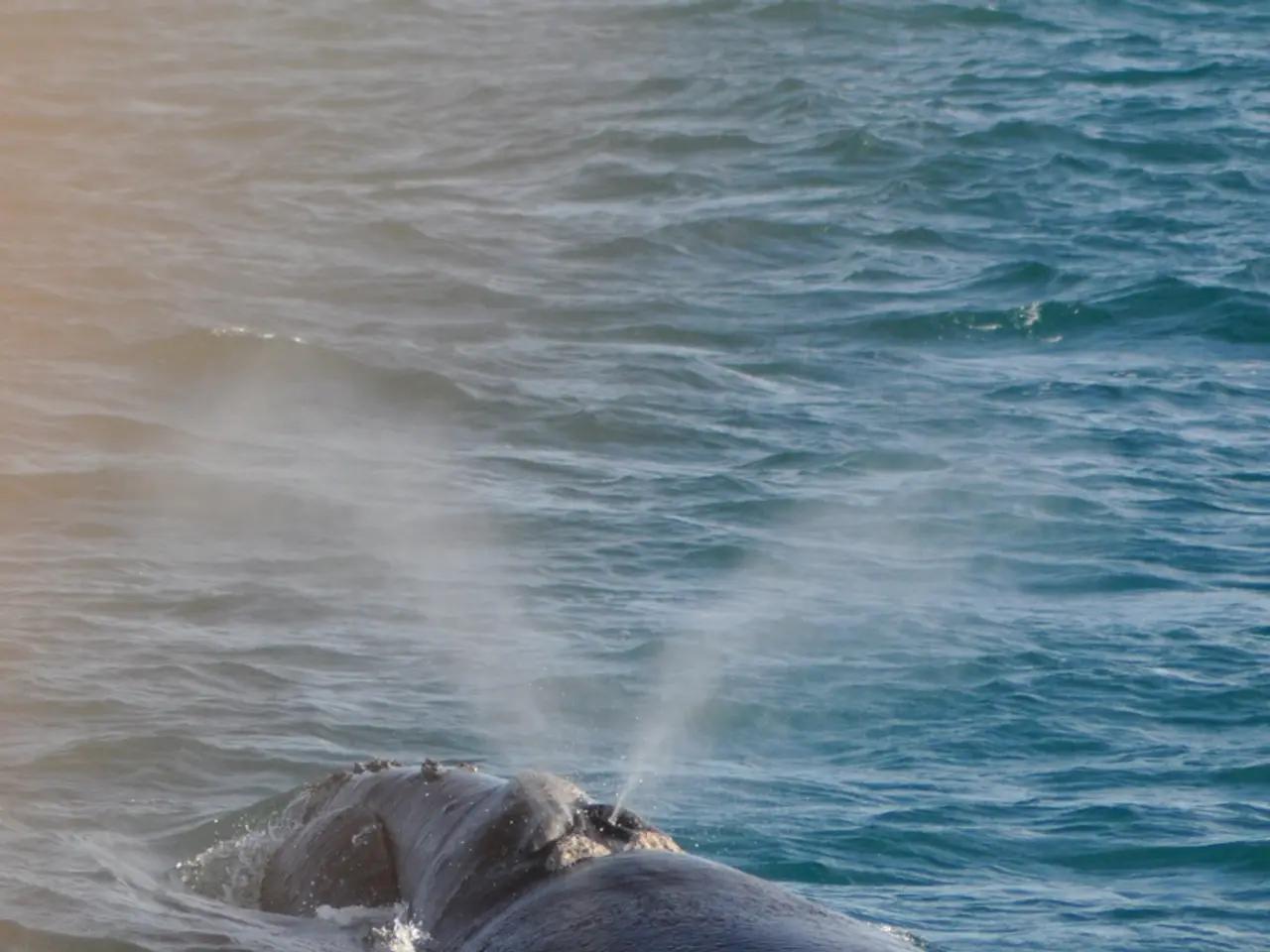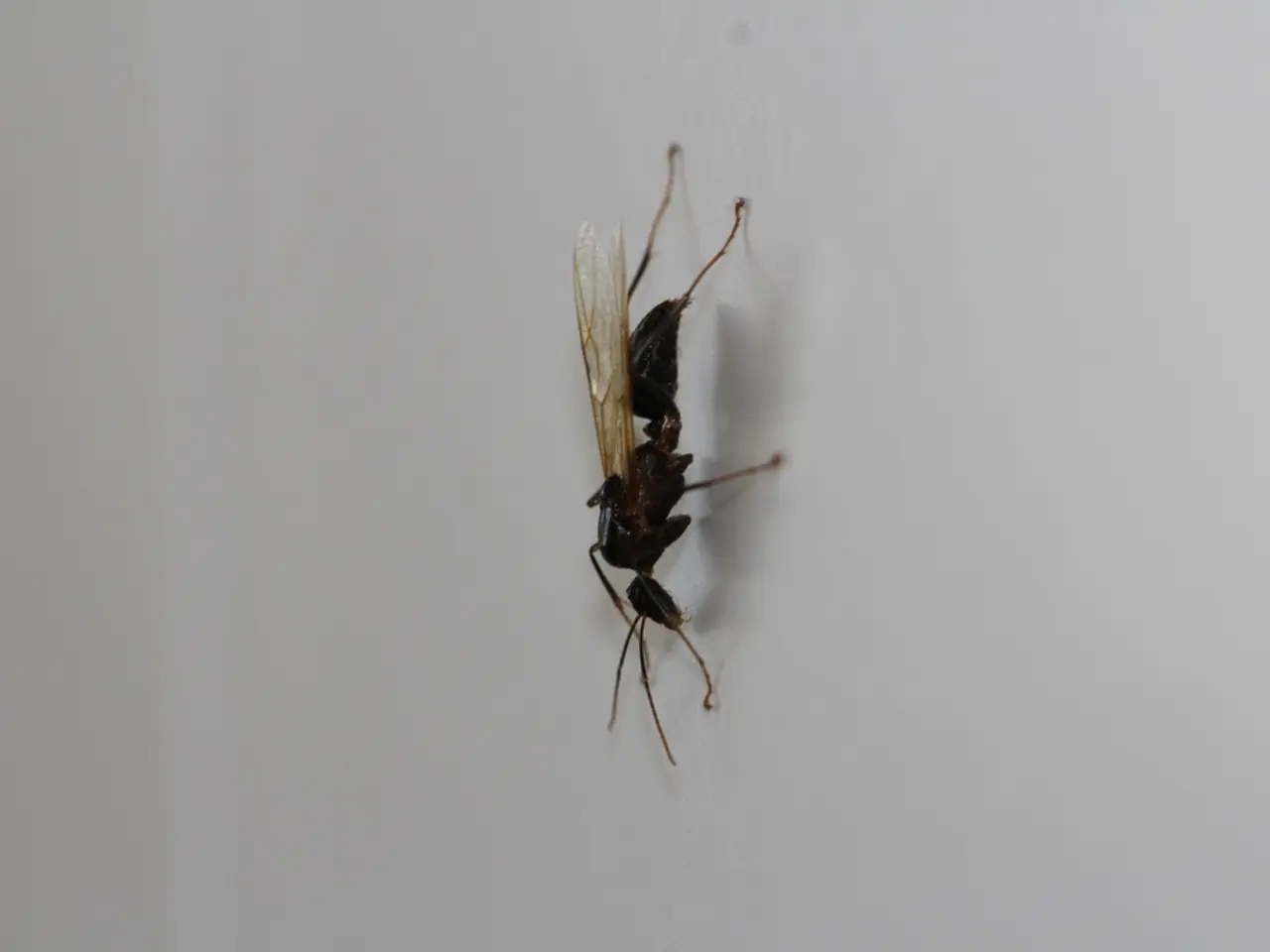Declining Blue Whale Songs Indicate Potential Ocean Health Concerns
In the vast expanse of the world's oceans, the silence of blue whales has become a concerning indicator of potential issues not only for these majestic creatures but also for the ecosystem as a whole.
Research into this phenomenon began in 2015, during a catastrophic marine heatwave known as 'The Blob'. This event, which raised ocean temperatures and disrupted nutrient cycles, led to the death of many krill, a key food source for blue whales. As a result, these whales have been spending more time foraging and less energy on singing, leading to a significant drop in their vocalizations.
Blue whales, being long-lived and roaming vast distances, are considered "ecosystem sentinels". Their acoustic behavior essentially serves as an indicator of ecosystem resilience and the broader impacts of climate change on ocean biodiversity.
The silence of blue whales correlates with reduced prey abundance, indicating ocean health decline due to warming waters, disrupted nutrient flows, and toxic algal blooms. Humpback whales, who can switch between krill and fish, have shown resilience in their vocalizations, continuing to sing during food-scarce years.
The study, published in PLOS ONE, reveals that across the Pacific, from California to New Zealand, the same pattern has been recorded: warming seas, fewer krill, and quieter whales. The research was led by biological oceanographer John P. Ryan, who monitored blue, fin, and humpback whale songs off the California coast using an underwater microphone 3,000 feet deep.
Marine heatwaves like The Blob have devastated the marine food chain and pushed krill populations toward collapse. The average duration of ocean heatwaves has tripled since the 1940s, with these events now up to 5°C hotter than historic norms.
Researchers warn we may be approaching a tipping point due to the impact on whales and the ocean ecosystem. If the largest, loudest, most wide-ranging creatures on Earth, the whales, start going silent, it could indicate potential issues for our future.
During the COVID-19 lockdowns, ocean noise dropped dramatically as global shipping slowed, and whale activity increased. This suggests that animals change their distribution and use the habitat differently when humans are not present.
Whale song reflects foraging success, reproductive effort, and the overall health of the ecosystem. It could serve as a powerful biological sensor for climate change, fisheries management, and ecosystem conservation. The peer-reviewed study found that the silence of blue and fin whales directly correlates with krill population data and ecosystem stress indicators.
Scientists are pushing for a global network of underwater listening stations for more effective tracking of ocean health using Passive Acoustic Monitoring (PAM). This network could provide early warning signs of oceanic changes and help in preserving our planet's marine biodiversity.
- The decrease in blue whale vocalizations, as observed in 2015 during 'The Blob', suggests a direct correlation with climate change, health-and-wellness of the oceans, and the wider impacts on ocean biodiversity, making them valuable indicators in environmental science.
- With marine heatwaves like The Blob pushing krill populations towards collapse, researchers are focusing on developing a global network of underwater listening stations for Passive Acoustic Monitoring (PAM), aiming to utilize whale songs as a powerful sensor in science, particularly for assessing climate change, fisheries management, and ecosystem conservation, thereby contributing to the preservation of our planet's marine biodiversity.




